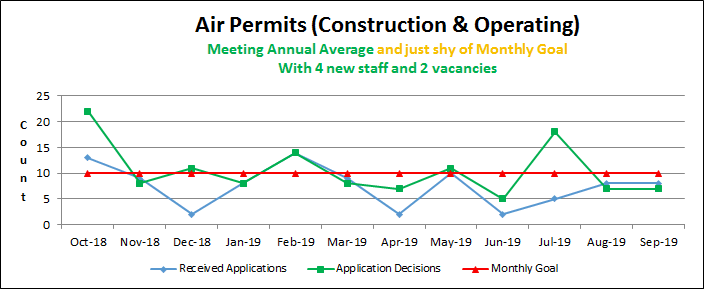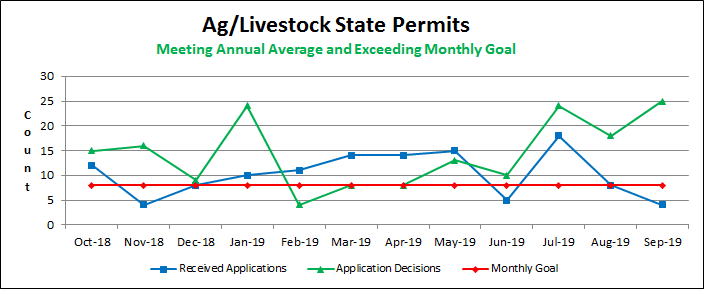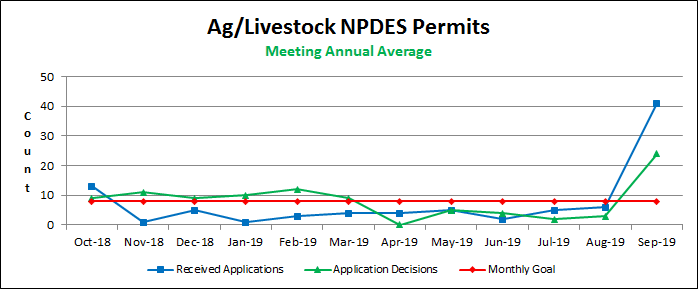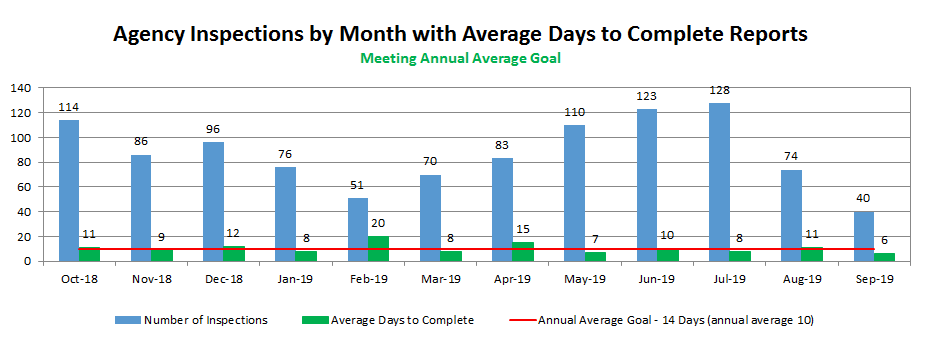September 2019 metrics report




Emerging Risks/Issues:
- NDEE and USDA announced a joint effort to improve the process to maximize the funding available to Nebraska communities to address water infrastructure needs. The announcement was made Sept. 20 in Lincoln at the Nebraska League of Municipalities conference. The joint effort is being coordinated through the Nebraska Center of Operational Excellence. The team has set a deadline of January 1, 2020, to have the process improvement model completed. The goal is to reach as many communities and projects with all available funding.
- The 2019 Clean Diesel Rebate Program is now accepting applications for two types of rebates – local diesel truck replacements and agricultural irrigation pump diesel engine replacements. Applications must be submitted to NDEE by January 17. NDEE anticipates funding replacement of 12 diesel trucks and 17 irrigation engines.
- After West Point’s water tested above 1,000 micrograms of manganese per liter, a public notice was issued recommending all residents avoid drinking the city’s water. West Point is working to update its water treatment plant to filter manganese, and the Drinking Water Division is assisting the city.
Accomplishments:
- NDEE has created a new section to assume Clean Water Act Section 404 duties from the U.S. Army Corps of Engineers, which regulates the discharge of dredge and fill materials into the waters of the U.S., including fill for development, dams and levees, highways, airports, and farming and forestry activities.
- NDEE is among the first states to adopt the 2018 International Energy Conservation Code, which goes into effect July 1, 2020. The agency is initiating a training plan to educate code officials, builders, and developers about the updated codes, and Midwest Energy Efficiency Alliance has applied for federal funding to support this training initiative.